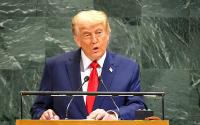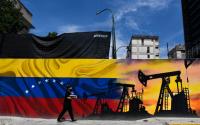14 August 2007Washington PostEva Kuehnen
Germany's solar companies are driving up capacity to meet strong demand for renewable energy, while access to silicon remained the make-or-break factor for their second-quarter results on Tuesday.
Q-Cells <QCEG.DE>, the world's second-largest solar cell producer after Japan's Sharp Solar <6753.T>, posted a 52 percent rise in quarterly operating profit, beating analysts' forecasts.
Q-Cells now expects production output of 370 megawatts peak (MWp) this year, more than the 360 MWp it had forecast earlier, and as a result lifted its full-year outlook.
Its shares rose by 0.75 percent to 64.62 euros by 1500 GMT, while Germany's technology index <.TECDAX> fell slightly.
By contrast, Ersol <ES6G.DE> stock declined by 1.3 percent after the solar cell maker's operating profit fell 27 percent in the second quarter due to ramp-up costs for its thin film production and new solar cell plants. It stuck to its outlook.
"In view of the increasing integration and the significant growth that the company should experience from its sourcing contracts, Ersol should be able to realize substantial synergies and economies of scale from 2008 onwards," Sal. Oppenheim said in a note.
An analyst who asked not to be named said: "You can really tell from the results which companies have good silicon contracts and the ones which haven't."
Q-Cells, for example, said the first half of the year was "particularly successful in terms of securing our supply of raw materials for the core business." It also recorded strong gains from selling silicon to EverQ, its joint venture with Evergreen Solar <ESLR.O> and Norway's Renewable Energy Corp <REC.OL>.
"Q-Cells is able to take more advantage of the strong market situation at the moment, while this should be a transition year for Ersol," one analyst said.
"Overall, Q-Cells is basically in a position to produce the cell more efficiently (than Ersol) and can benefit from economies of scale," he added.
Q-Cells is one of the most profitable German solar companies and posted an EBIT margin of almost 24 percent in the second quarter. Ersol had a margin of about 12 percent.
SALES ABROAD
SolarWorld <SWVG.DE>, which confirmed its preliminary second-quarter results on Tuesday, particularly benefited from strong growth outside Germany, which has actively promoted alternative energy.
The maker of solar wafer, cells and modules beat analysts' forecasts with a 32 percent rise in second-quarter operating profit and said it would exceed its most recent full-year forecast.
SolarWorld has a strong presence in the United States after it bought Shell Group's <RDSa.L> then loss-making silicon solar operations last year and acquired another production site for solar wafers and cells earlier this year.
"Many other countries are now adapting energy laws similar to the German one," said Theo Kitz, analyst at Merck Finck.
"You can still earn good money there," he said, adding that demand in Germany could decline next year as the German government is due to review its renewable energy law, which could lead to lower feed-in tariffs for renewable energy.
Countries like the United States, Spain, Portugal and Italy were particularly interesting, he said.
Q-Cells and SolarWorld all have an export ratio of more than 50 percent, while smaller solar companies such as Aleo Solar <AS1Gn.DE> or Sunways <SWWG.DE> are more dependent on the German domestic market.
Aleo said it aimed to generate half its revenue abroad by the end of 2010.






